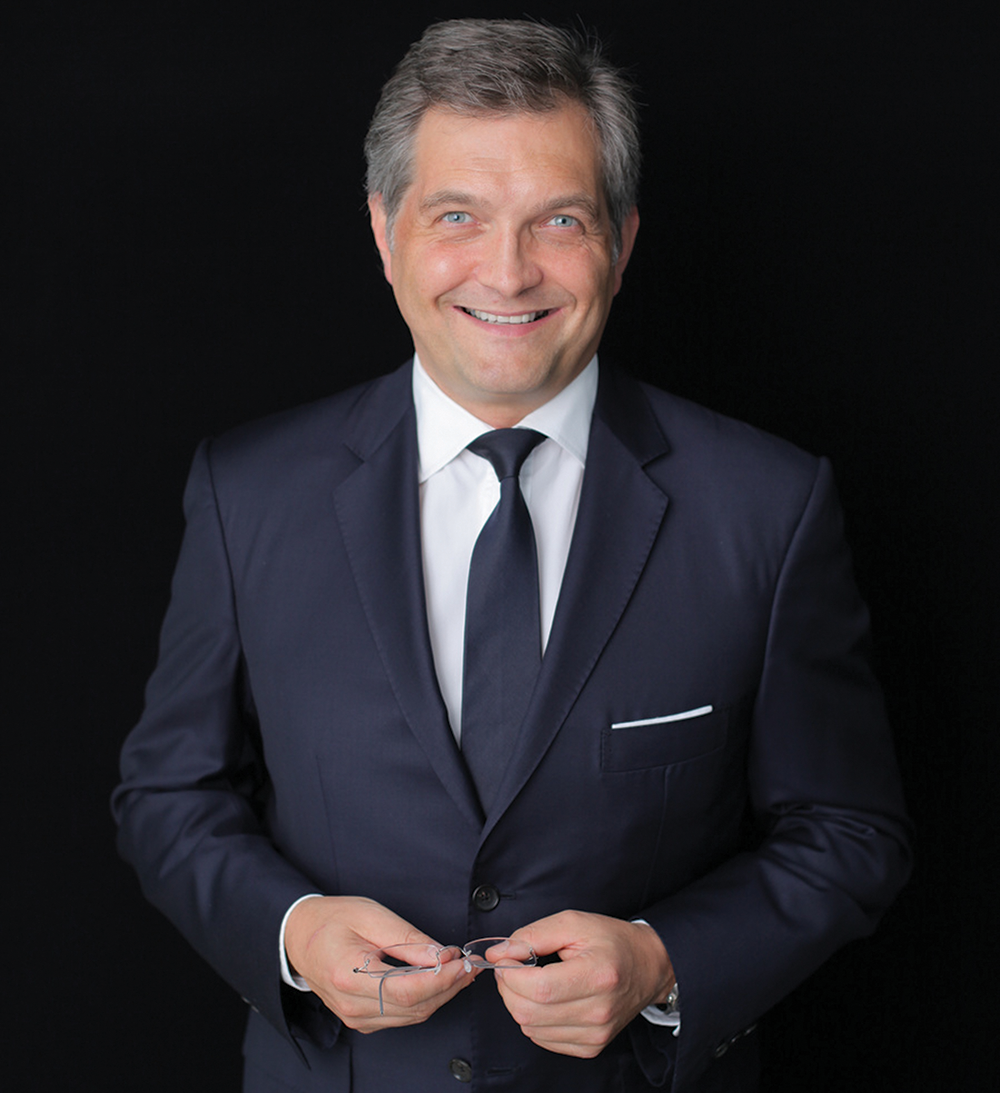
The Weill Cornell Medicine Daedalus Fund for Innovation has awarded a two-year, $300,000 grant to Dr. Roger Härtl and his team for their proposal, “Total Disc Replacement Using Tissue Engineered Intervertebral Discs in the Porcine Cervical Spine.” The award allows the team to advance its pioneering research into bio-engineered replacement discs that may one day relieve the pain of degenerative disc disease in humans without the risk of complications inherent in current fusion and total disc replacement surgery.
The new project builds upon earlier research testing tissue engineered intervertebral discs (TE-IVDs) in animal models. A 2017 study described the successful use of TE-IVDs in animal models. The discs were constructed from cells extracted from animal discs, then seeded into collagen and alginate hydrogels for implanting. The same work had been tested successfully in rats, and in this version the TE-IVDs promoted stable implantation and maintained disc height, tissue viability, and physiological hydration. The new work will test the process in pig models.
Dr. Härtl and his team hope that TE-IVDs will relieve the nerve compression and chronic back pain caused by disc degeneration. This degeneration occurs in 40 percent of individuals younger than 30 and more than 90 percent of those over the age of 50. Treating the symptoms of disc degeneration can involve pharmacological and physiotherapeutic treatments, but for many patients surgery to remove the old disc and either fuse the adjoining vertebrae or insert a mechanical disc is the best option.
Dr. Härtl’s team believes that using TE-IVDs to replace affected discs can lead to better outcomes in comparison to using prosthetic discs or performing spinal fusion. Prosthetic disc replacement brings risks of adjacent segment disease, and spinal fusion carries risks of pseudarthrosis, which occurs when bones in the spine do not come together properly when healing. These risks can lead to higher rates of reoperation in patients and hurt patient outcomes.
The efficacy of the TE-IVDs were determined by performing discectomy and IVD resection on animal models at levels between C3/4 and C6/7. The models were divided into two groups: some received only the discectomy and others received the discectomy followed by implantation of TE-IVD. Those who received the implanted TE-IVDs showed retention of disc height and physiological hydration in comparison to the control group. In an encouraging development, the implanted TE-IVDs kept their structure, hydration, and position for more than 16 weeks in the test period.
The Weill Cornell Medical College Daedalus Fund for Innovation was designed to support early-stage research projects and to foster and expedite the development of discoveries that can benefit the public. The fund supports key experiments aimed at generating the proof-of-concept and validation data necessary make a new technology commercially viable.
The research team is a collaboration between Dr. Härtl in New York City and Dr. Lawrence J. Bonassar in the Bioengineering Department at the Cornell campus in Ithaca. It requires a slate of spine experts and biological engineers who include Drs. Yu Moriguchi, Jorge Mojica-Santiago, Peter Grunert, Brenton Pennicooke, Connor Berlin, Thamina Khair, Rodrigo Navarro-Ramirez, Rodolfo J. Ricart Arbona, and Joseph Nguyen.